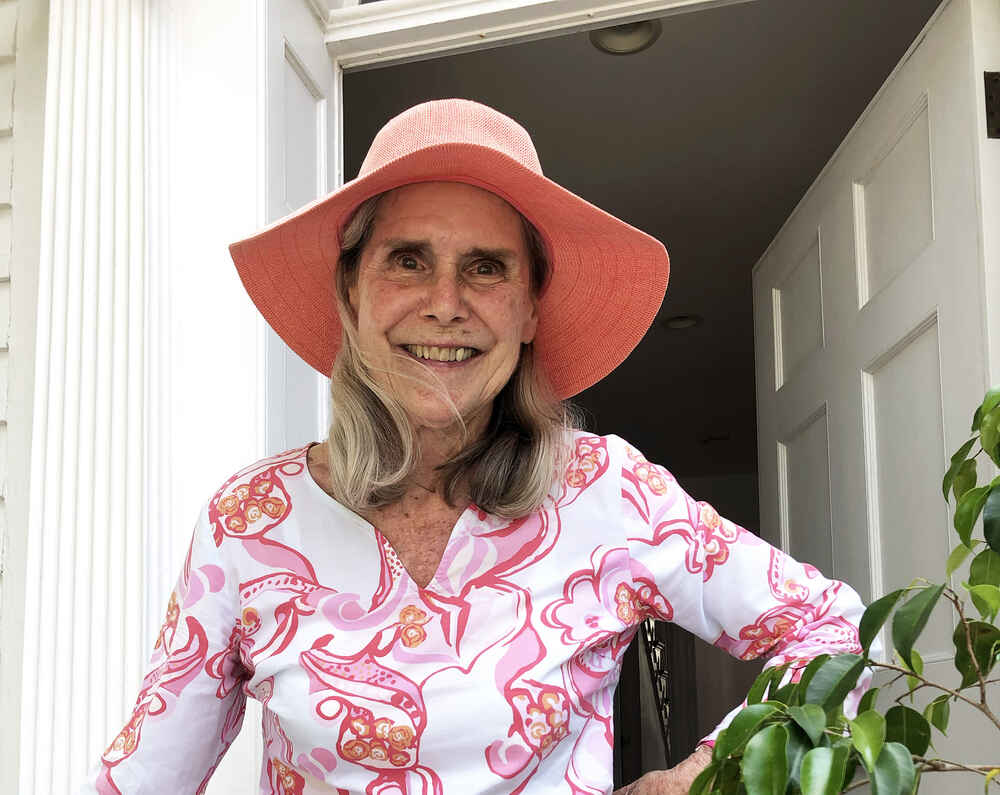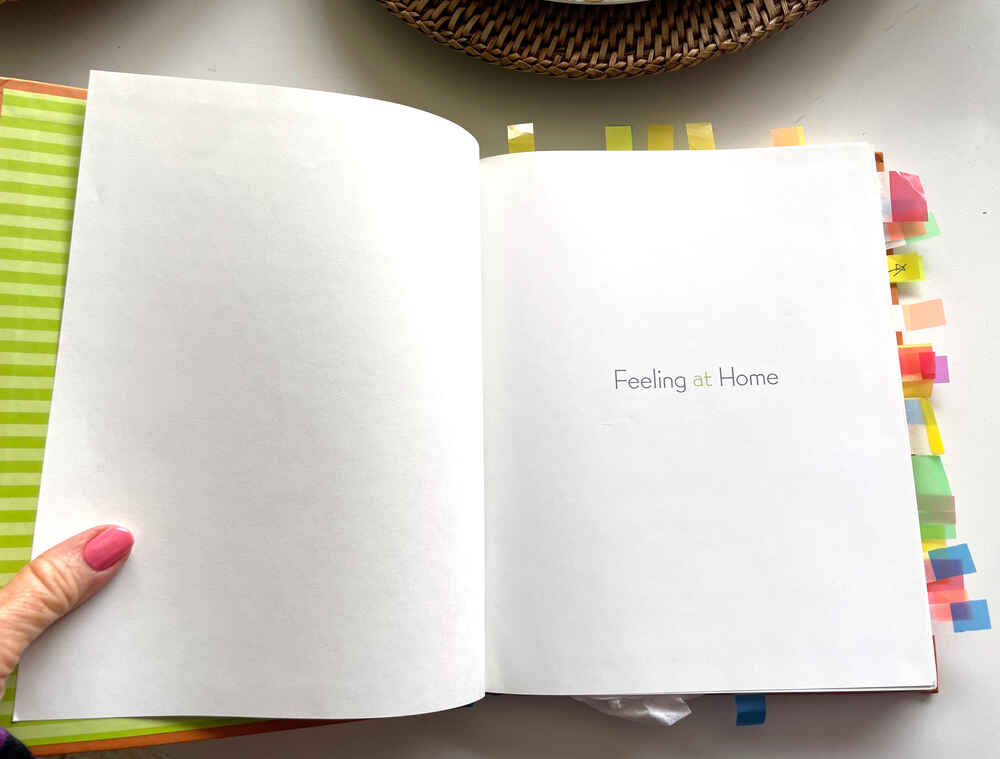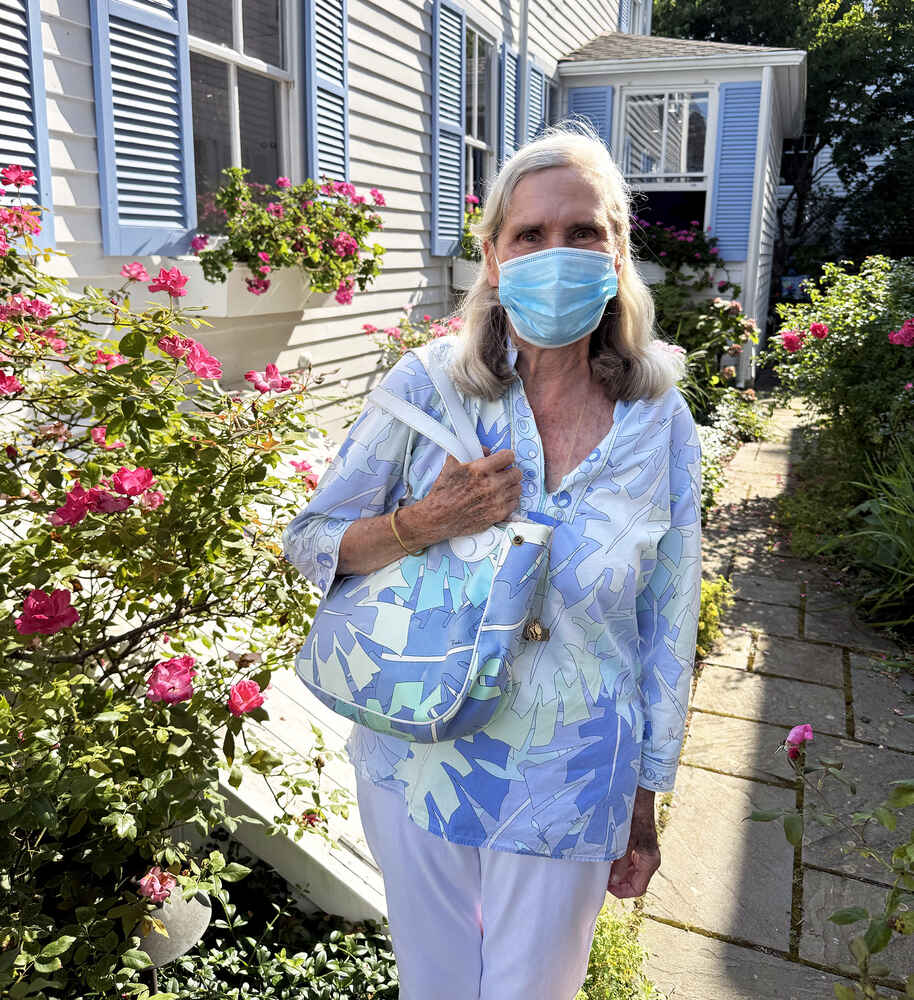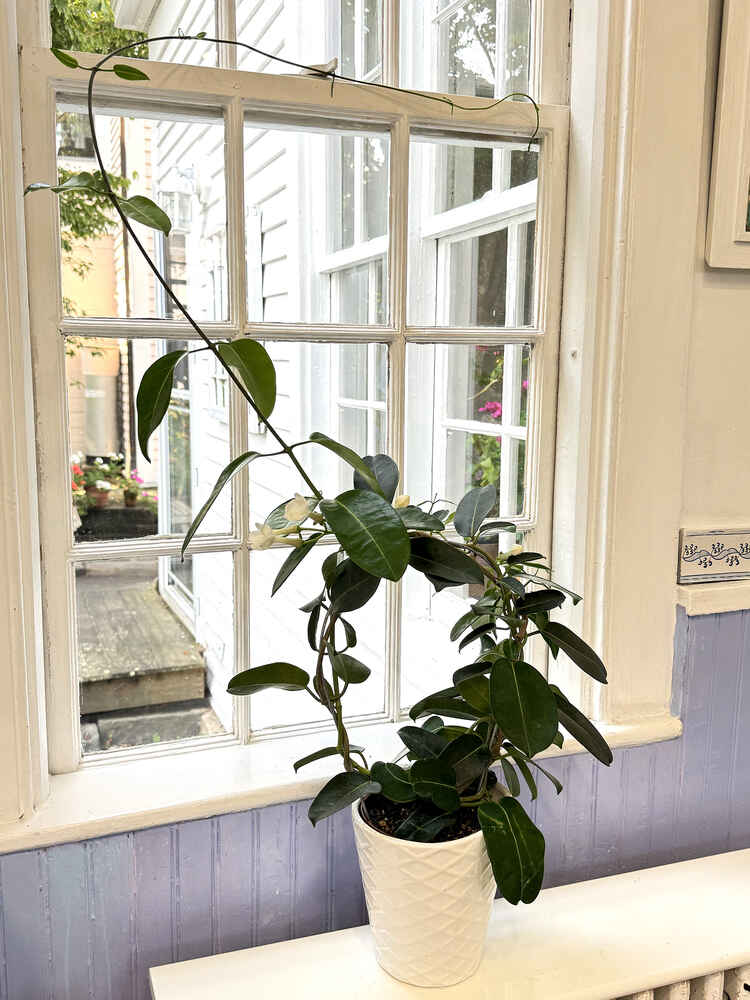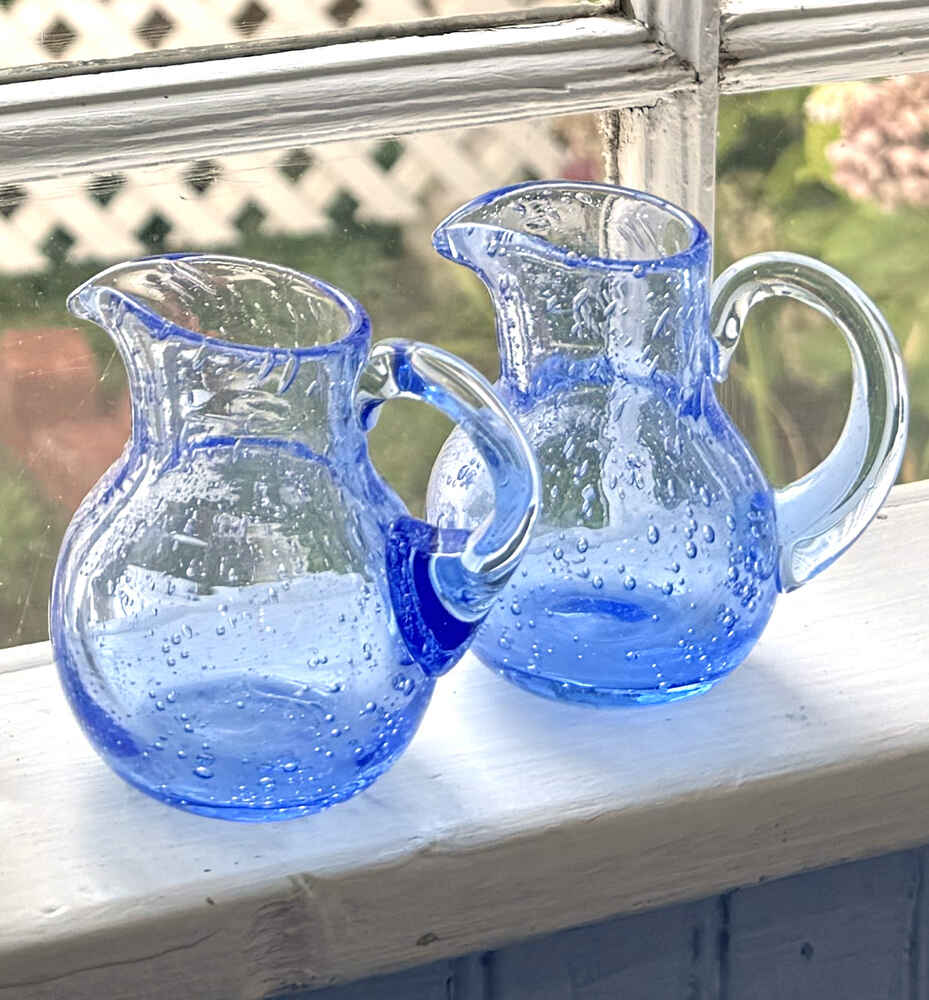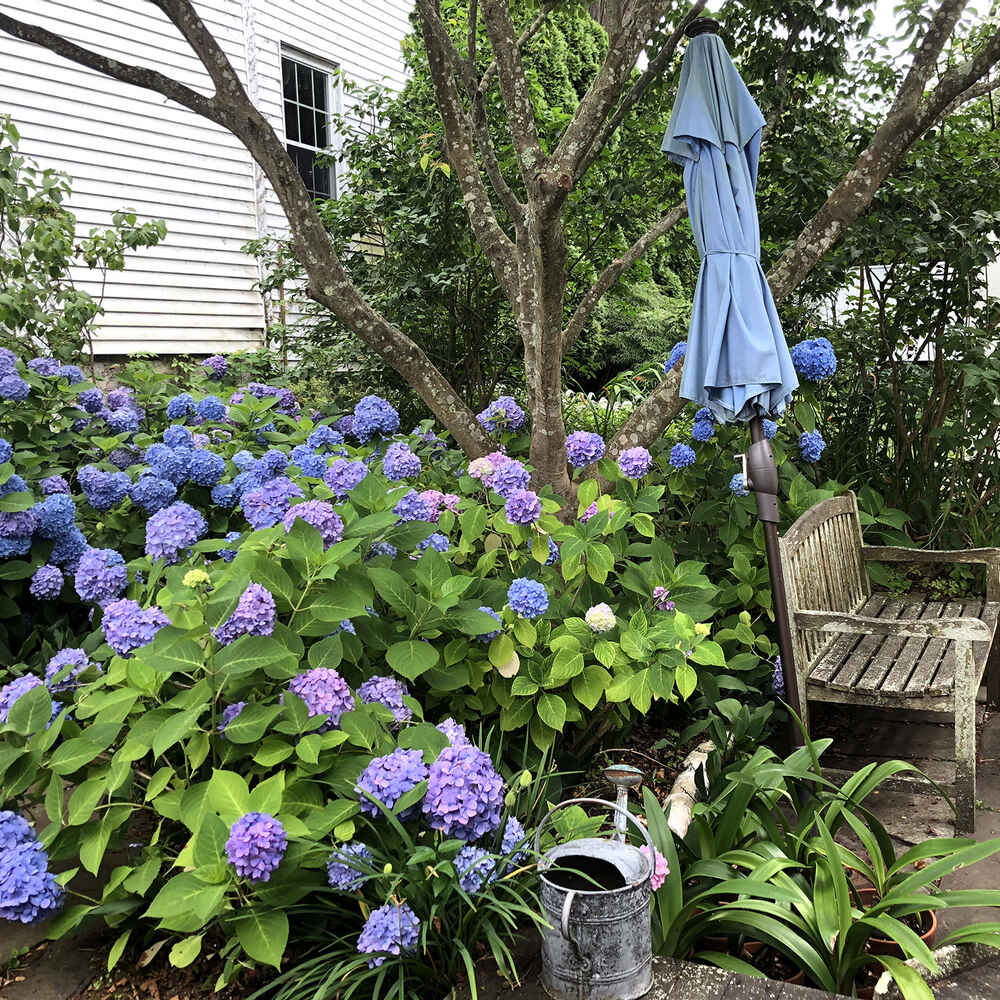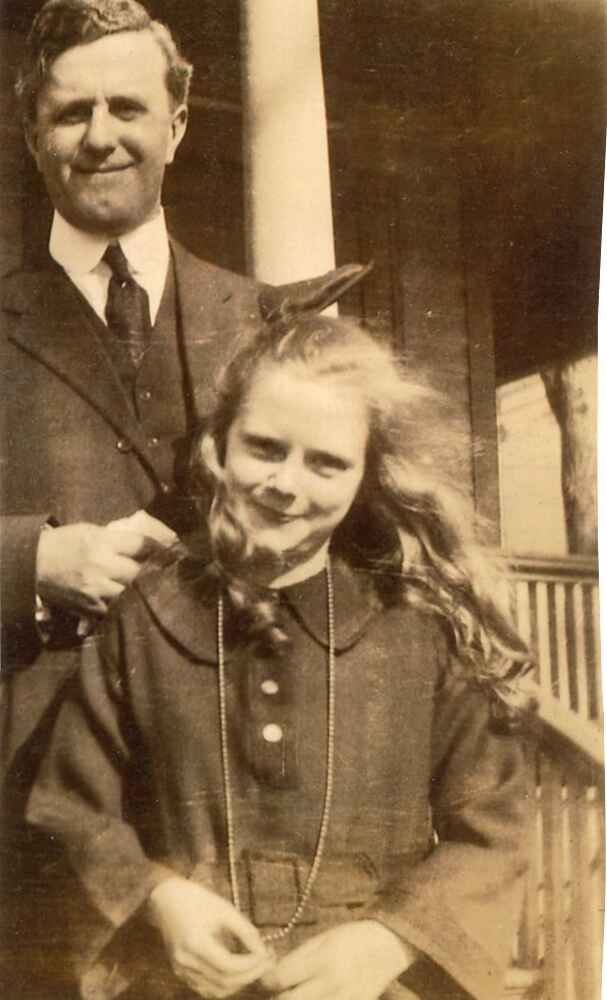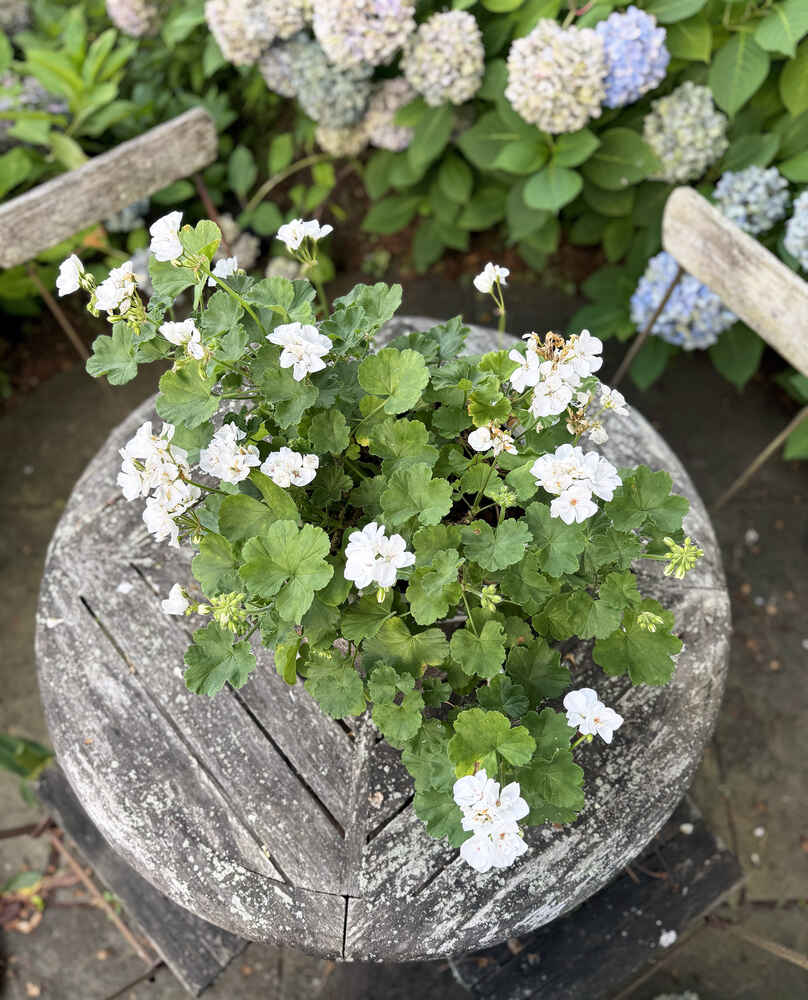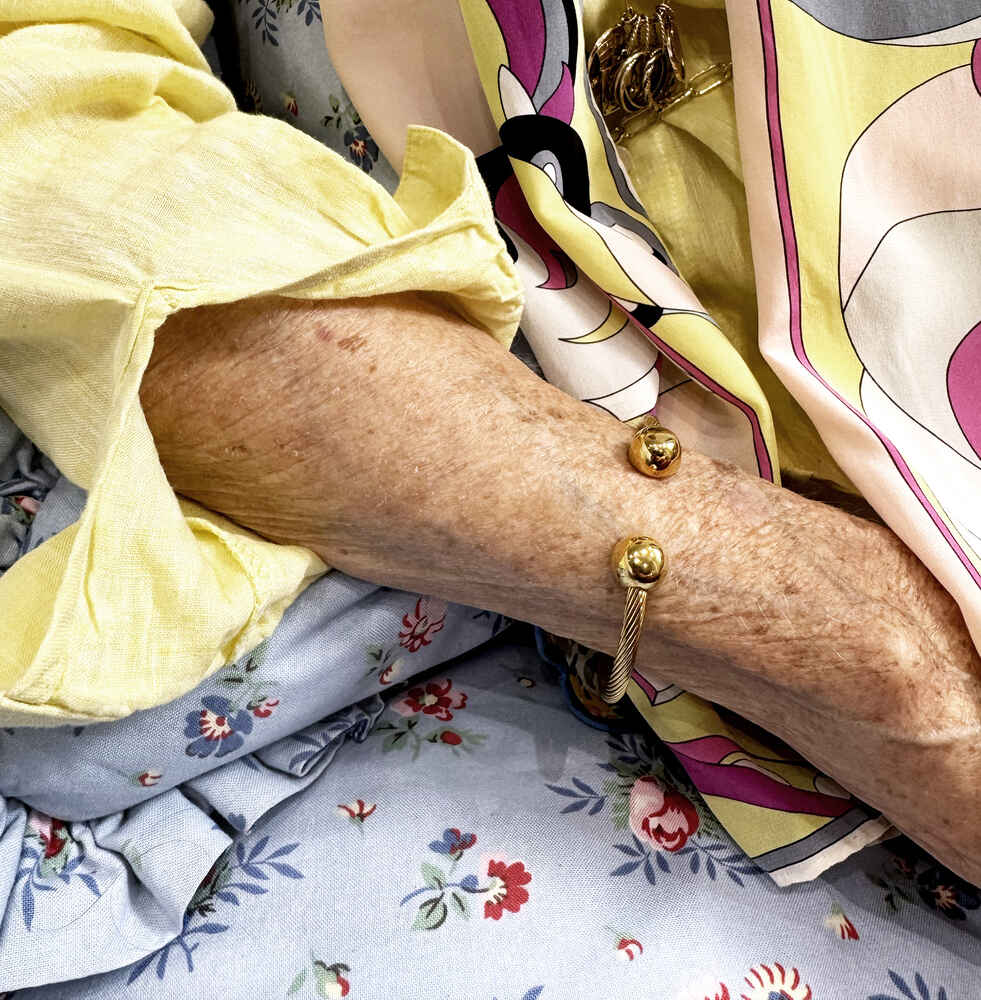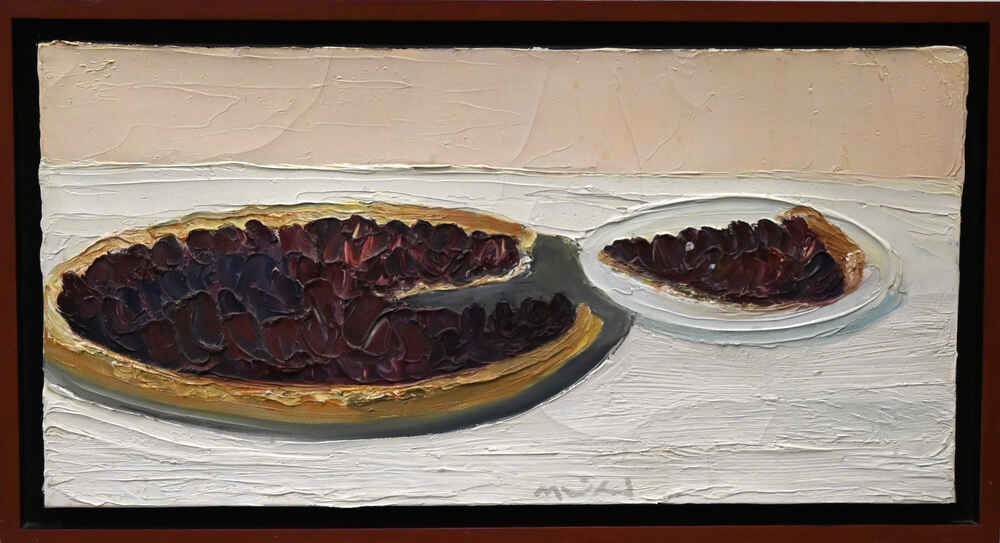AUTHOR | SPEAKER | PHILOSOPHER | DESIGNER
August 2025
Dear Friends,
I love you!
I’m having a perfectly magnificent summer! I hope you are enjoying all the rich blessings this magical time of year offers us. I feel full of wonder and awe as I welcome the beautiful, precious month of August, because July has been such a delight.
The entire month of July seemed to flow by in a forward direction. The more engrossed I became, the more absorbed, the faster I felt the sand appear at the bottom of the hourglass! The sun went black at the end of each bright day. The more we focus on paying attention to the present moment, the more aware we become; we learn how best to spend our precious time. Living takes time.
I look back on July and am astonished that I enjoyed so many fun, happy experiences. I attributed a great deal of my day-to-day pleasure to the quality of my sleep. For whatever mysterious reason, I’m sleeping through the night! Amazing grace!
I want to relive my meaningful theater productions with you that I’ve most enjoyed this summer.
Live Theater
I continue to be amazed at the high quality of live theater near me. I began the summer going to a tough play — Angels in America Part One: Millennium Approaches, written by Tony Kushner and directed by Brian McEleney. Part Two: Perestroika is playing in September.
These two monumental plays at the Gamm Theatre in Warwick, Rhode Island, are exceptional because of the company’s superb character actors. Tony Estrella, the artistic director, is a powerful actor who plays Roy Cohn, who, like so many in the 1980s, got AIDS.
I’ve enjoyed going to all the productions of this small, superb theater company. As a theatergoing enthusiast, I am growing more observant, savoring the art form of live acting that constantly evolves. Actors, through their teaching and experience, become great because of their creative nurturing and opportunities to perform.
Tony Kushner started to write Angels in America in 1990 during the time the AIDS epidemic was killing gay men throughout the United States and the world. The country and the world are different 35 years later. Will this ambitious, prescient play speak to the new generation? Director McEleney wrote that many people responded to this existential despair “in their personal lives and in the political arena with heroism, self-sacrifice, wisdom, compassion and love.” As we know, many others did not.
The plea is for all of us to call to our higher angels. This transcendence requires our determination, compassion and hope. The serious message of the play is a powerful tug on our conscience to be mindful and loving.
Always … Patsy Cline
On a cheerful note, I went with my friend Muriel to the first musical of the season at Theatre by the Sea to hear some music from the late ’50s, ’60s and up to the present. It was lighthearted fun to hear “Crazy,” “Your Cheatin’ Heart,” “You Belong to Me,” “Shake, Rattle and Roll,” and “True Love” live on stage, with Meagan Lewis-Michelson in Patsy Cline’s iconic cowboy boots with her Texas twang.
Theatre by the Sea in Wakefield, Rhode Island, is on the National Register of Historic Places.
About Time: A New Musical Revue About Life, Love & Laughter in Your Third Act
At Goodspeed’s Terris Theatre in the charming little town of Chester, Connecticut, About Time is the last of the trilogy beginning with Starting Here, Starting Now (1977) that is mostly songs of love. The middle musical, Closer Than Ever (1989), is about more adult relationships. The writers, Richard Maltby Jr. and David Shire, put the lyrics and music in chronological order, telling the story of life in a musical.
About Time is the third phase of life: the “golden years.” The audience was ripe for some humor about having our first two — beginning and middle — years in the rearview mirror; we are firmly in the end and final phase.
All the joyously uplifting songs touch a chord in our heart. Because they’re about life’s realities and complexities, we feel delight in the collective energy of the universal truth about being old. Because this is a new musical, you won’t be familiar with the numbers, but trust me, they are all touching, and we had good belly laughs throughout the show.
Later in the show, one of the cast members says, “Isn’t life just hilarious!?” Until we have had the privilege of longevity, we have no clear knowledge about our emotional and spiritual intelligence. For many of us, these are the halcyon days of calm and inner peace.
Studies show that we, as a whole, are happier in this evolution than in all the middle years. We feel prosperous in our soul and can find real life most pleasant. We reflect on our lives and feel we were successful in living a good life. All of us left the theater feeling grateful to be alive. “After All These Years” and “Saying Goodbye” were sung as a reminder that we can’t take anything for granted.
It’s “About Time!”
Kiss Me, Kate
I love all music and lyrics by Cole Porter. There is such a sense of gaiety, delight and pure joy, and whenever I think of these lyrics, the tune joins in:
- “You do something to me”
- “Night and day, you are the one”
- “I get no kick from champagne”
- “I’ve got you under my skin”
- “It’s delightful, it’s delicious, it’s de-lovely”
Going to the musical version of The Taming of the Shrew, putting Cole Porter’s lyrics and music to Shakespeare’s funny dramatic play is, indeed, “delightful,” “delicious” and “de-lovely.”
Kiss Me, Kate is the current play at the Granite Theatre in Westerly, Rhode Island. This theater is celebrating its 25th anniversary in a stately building, made of granite from a nearby quarry, that used to be a bank. The lead is going to be a senior at the University of Rhode Island and has real raw talent; this is his debut at the Granite. The entire cast is local, and their thrill to be in this production is palpable, creating an infectiously energetic spirit that spreads to the receptive audience.
The more live performances I attend, the more astonished I feel at the sense of collective creativity from the cast, the team, and the collaboration of talent. We who show up to let the actors tell us the story, in song and verse, inspire our own unique human expression.
Susan Sontag understood that writers pay “attention to the world.” Live theater gives us a retreat from distraction; we adjust to the tempo, rhythm and meaning of what’s in front of us on the stage. Everyone has silenced their phones!
The stage is set for rapture:
- “So in Love”
- “Brush Up Your Shakespeare”
- “Too Darn Hot”
- “Wunderbar”
- “Why Can’t You Behave?”
- “We Open in Venice”
- “Tom, Dick or Harry”
- “I Hate Men”
- “Always True to You in My Fashion”
But I'm always true to you, darlin', in my fashion
Yes, I'm always true to you, darlin', in my way
Cole Porter is a genius.
All Shook Up
Going from Cole to Elvis in one week was quite a musical jump! I was a teenager in the 1950s at a strict all-girls’ school in Northampton, Massachusetts, when Elvis Presley appeared on stage. This music mesmerized fans, who went wild, crazy-mad, over his new physicality, his rhythmic gyrations. When he sang “Don’t be Cruel” or “Blue Suede Shoes,” his (mostly female) audience screamed and swayed in uncontrollable ecstasy.
The Goodspeed musicals are so professionally cast, the actors’ voices pitch-perfect and the choreography as excellent as is humanly possible. Going to a musical comedy inspired by Elvis and featuring his songs was a vivid flash to my youth. The ’50s are still a vital part of who, what and where I am in my life today. His music reawakened kinetic energy, and I felt the excitement of being rapt in attention that touched my every nerve. Quite literally, I was “all shook up!” Hm, ooh.
My friend Kim and I arrived at Goodspeed early after a leisurely lunch in nearby Chester, Connecticut. We sat on a balcony sipping ginger ale and looking at the activity on the water and the swing bridge. “Hurry never.” “The process is the reality.”
This play is about life, hope, possibility, acceptance and transformation. Waking up to be fully alive. Delightfully, we’re drawn into a story. The show begins with “Jailhouse Rock” and “Heartbreak Hotel.”
Well, since my baby left me
I found a new place to dwell
Down at the end of Lonely Street
At Heartbreak Hotel
A wanderer, Chad, just out of jail, drifts into a dreary town on his motorcycle in need of repair, with a guitar on his back. The transformation from the townspeople being discouraged, depressed and lonely to awakening to love, light and possibility is inspiring. “It’s Now or Never.”
As the 21-actor cast responds to the pleas, “C’Mon Everybody” and “That’s All Right,” we experienced the collective energy of opening our hearts to love.
- “Love me tender, love me sweet, never let me go”
- Can’t Help Falling in Love
- Burning Love
The live orchestra added to the spectacular, dazzling performance. A gentleman who sat behind Kim is a drummer and was also in awe. His wife gave him tickets as a Christmas present. He was going to wait to be free to go down to the pit in front of the stage to thank the drummer.
When he, whose career is playing the drums in a band, took the time to congratulate a musician, I teared up even more. Pure magic. I want to repeat the reprise, “Can’t Help Falling in Love,” in my soul.
We left the theater, stepping outside in the blazing sunlight in an extreme state of exuberance. Kim surprised me on my way home, stopping in Salem for ice cream. When we’re so happy, we can’t contain our joy, mmmm. Mmmmm.
Pure joy!
My Remarkable Mentor
Growing up, we’re lucky if we have an adult relative we admire besides our parents. Sometimes it’s a grandparent, aunt, uncle, great-aunt or great-uncle we become extremely close to, someone we look up to and admire. To my great good fortune, my father’s older sister Ruth Elizabeth Johns (my aunt Betty) changed my life.
In 1946, when I was 6, we moved from Weston, Massachusetts, to Westport, Connecticut. Aunt Betty was an international social worker and lived for long stretches in Asia (Burma, now Myanmar, and Ceylon, now Sri Lanka). When she was stateside, she took the train to come visit her brother and his family.
Her concern for social issues was vast and profound. Her adventures in different parts of the world outside the United States seemed so exotic, foreign and exciting to me. I was living such a sheltered, limited, provincial life. The globe’s people became her concern. She was at home wherever she could be part of solutions to deeply serious problems.
Sadly, they have not been resolved 65 years later.
Everything turned around for me, 360 degrees, the summer of 1960, when I was a camp counselor teaching tennis and drama at a girls’ camp in Vermont. I received a phone call from Aunt Betty telling me she had decided to go back to Asia for a visit because she was leaving the Young Women’s Christian Association, and she had two months before she started a new job as an editor of Social Action magazine.
“Sandie, I want you to come with me,” she said. “I’m inviting Barbie and Betty. We’ll fly December first on a Pan American flight around the world. I’m sending you a box of books. Many were written by friends and educators who will help teach you about the history and culture of some key countries we’re visiting.”
I hung up the phone in total shock. I remember walking to the counselors’ log cabin and sitting at the desk overlooking a placid, tranquil lake. Rather than childish, giddy exuberance, I felt an inner peacefulness, an awakening, a beginning. In a few months I would be thrust into a whole new world Aunt Betty was eager to share with my sister, my cousin and me. She wanted us to be prepared.
Instinctively, I remember wanting to be on the water. A calm inside me made me feel like I was floating. I slowly glided through the clear, still water in a canoe. The gentle lapping sound of the oars created a soothing, comforting sensation that was most pleasant. I was deep in contemplation.
How on earth is it humanly possible to be so fortunate to have a whip-smart, loving, caring aunt whose work took her around the globe? Why, do you suspect, she chose to take her three oldest nieces, not her nephews, on this opportunity of a lifetime? My older brother Powell’s two younger sisters were invited to go on this excursion around the world with a well-tutored guide, his Aunt Betty. He was extremely excited and happy for us, while wishing he could be a male escort to carry our luggage!
I’ve written about Aunt Betty’s enormous impact on my life early on as a writer. Incidentally, the first book I ever wrote (on lined legal pads) was a book, Mentors, that never got near the publishing stage. My aunt’s influence on me has increased as the years accumulate. I think of her far more often than any other relative, as she is part of my most interesting events. I want to have her with me, knowing how much she would enjoy realizing her immortality. Love never dies.
When I was offered a full scholarship to attend a design school in New York city in 1959, Aunt Betty invited me to live with her in her modest apartment in the Upper West Side of Manhattan. The New York School of Design did not provide housing. My parents were delighted. I’d be sheltered by a warm, loving relative in a big, challenging, expensive city.
I slept on a daybed in my aunt’s study. Over the years, she corresponded with over 500 friends and associates from all over the world. Early in the morning, she’d quietly go to her desk at the far end of the room to write letters by hand. In bed, I’d awaken but stay motionless as she fired off a few letters before bathing and dressing for work. She wrote long, newsy letters to me when she was abroad, always bringing back small souvenirs.
Clearly, her three oldest nieces were not the only young people she mentored and encouraged. Having been the recipient of older people paying attention to me, letting me know they believed in my potential, enabled me to have the confidence to follow my instincts, to work hard and love my work.
Because of my aunt’s international, interfaith, sterling reputation, she influenced universities and radical schools to give students scholarships. Apparently, this was a mutually successful partnership.
Years later, when I was a young mother, Betty was at a conference at the United Nations, giving a speech for Social Action, when she had a stroke. We were scheduled to have lunch at an outdoor restaurant in Central Park the next day. She called in the morning from her hospital bed, in the same hospital where Alexandra was born, to tell me she couldn’t meet me for lunch. “How is your work?” “How are the girls?” “What are you planning for dinner?”
Here she was, in the hospital, having had a stroke the afternoon beforehand, reaching out to me. We nieces were her children. While brushing her teeth, a few hours after our conversation, she died before I reached the hospital.
At the funeral, my sister Barbara, my cousin Betty and I were ushered to the front right-hand pew. At the reception after the funeral, we gathered to celebrate her well-lived, far too short life. I heard from several dozen family members and friends that they had also received encouraging, caring calls from her that morning. Prescience? I believe she knew she would die and wanted to connect with her loved ones.
She left each of her nieces $1,000. As a social worker, she didn’t have a lot of money, but her work gave her a rich, happy, meaningful life. I created a travel fund. Through the years, I pretended Aunt Betty was with us on our adventures. The dead are always among the living. And, of course, she was, just as I’d brought Aristotle with me on my trip around the world. I began studying his philosophy at design school and read him on my leave of absence.
I am eternally grateful to Aunt Betty for giving me a jump start. She opened me up to explore different parts of the globe in order to better understand the human condition, our small green earth and my place in it.
Because of Aunt Betty’s exposing me to her universal family and acquiring a taste of (and for) their rituals, faith, ceremonies and daily rhythms, I feel at home in foreign lands. The poet Mary Oliver wrote a lovely poem, “Sometimes,” that is a reminder that writers should pay attention to the world, wherever we land.

August afternoon!
Savor the amazing effulgence that shines out in August light. Take time to let the sublime uplift you to a higher realm.
Love & Live Happy,

“The soul should always stand ajar, ready to welcome the ecstatic experience.”
—Emily Dickinson
This month, I'm letting go of an oil painting by Roger Mühl if anyone is interested in adding it to their art collection. Please contact Pauline at Artioli Findlay (pf@artiolifindlay.com) for more information.
Roger Múhl (French, 1929 - 2008)
Tartes, 1982
Oil on canvas
Canvas size: 11 7/8 x 23 1/2 inches
Framed size: 14 1/8 x 25 7/8 inches
Signed lower middle right, "Mühl"
This classic Muhl painting of a berry tart is painted with the artist's thick impasto.

